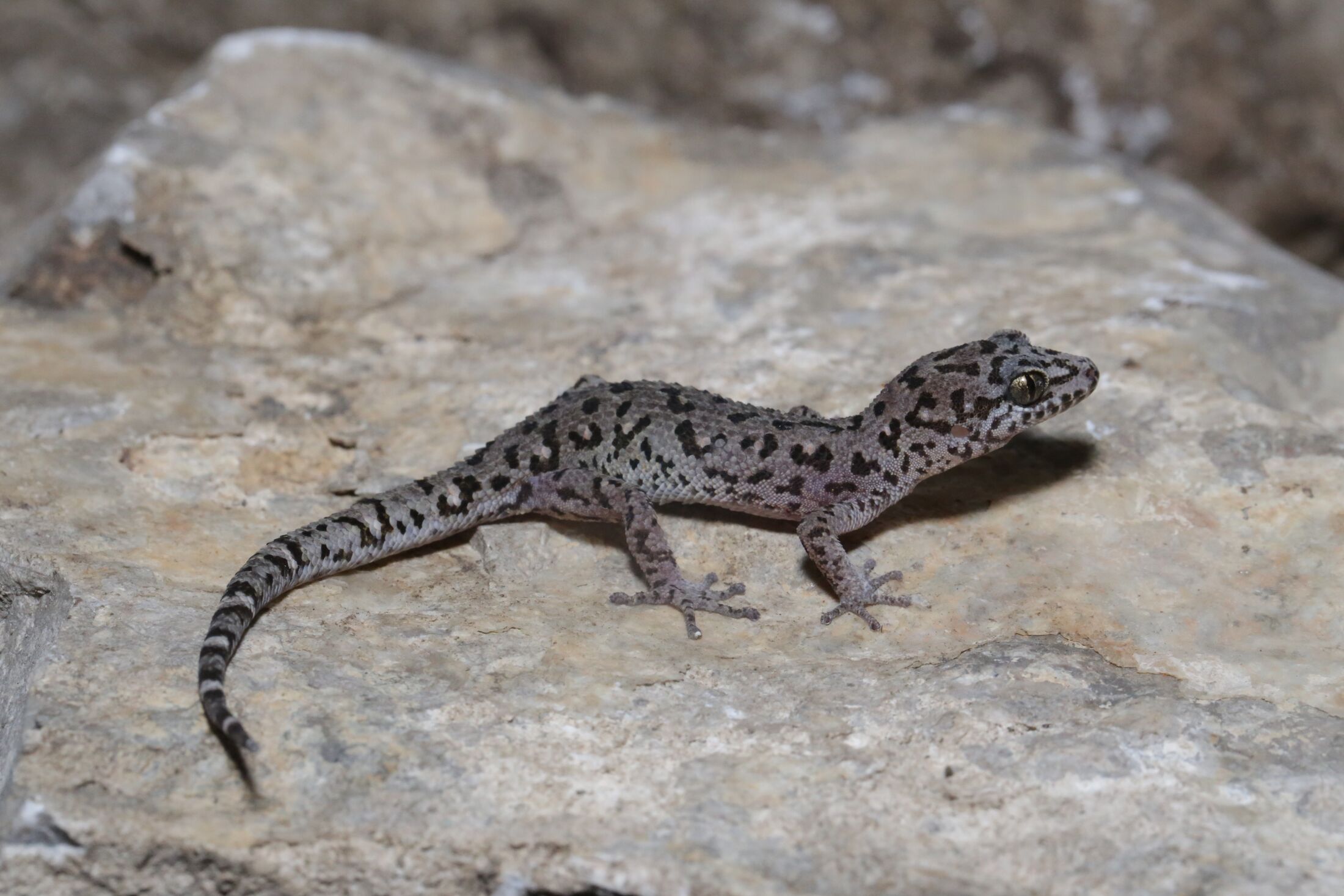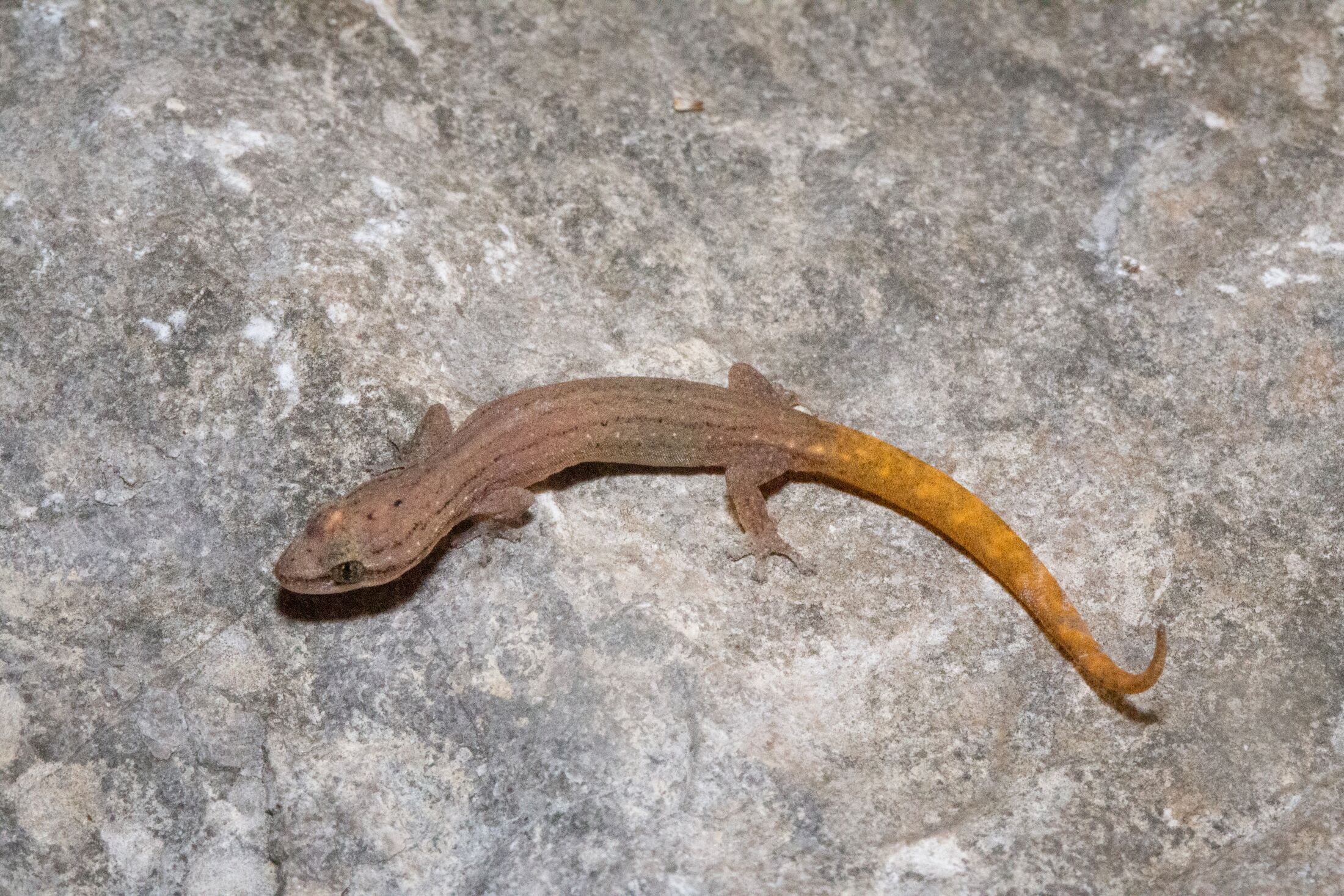Hidden away among the unexplored limestone hills of Cambodia are a series of karst formations. These uncharted caves, sinkholes, and towers have long been home to rare and elusive wildlife, but we’re only just discovering them. Most recently, four new populations of Kamping Poi bent-toed geckos have been discovered and are suspected of being four species instead of one, as well as a host of other beautiful spotted and striped new gecko species.
The dramatic and vulnerable landscape that surrounds the new bent-toed geckos, Cyrtodactylus kampingpoiensis, might be responsible for making it four species. The populations are separated by 5-20 kilometers (3 to 12.4 miles) of uninhabited terrain, making the idea of one population encountering another extremely unlikely. This prevents gene flow between the population and leads to a process called allopatric speciation, eventually leading the cut-off populations to evolve into a new species over time, a phenomenon that is common in karst landscapes. It remains to be seen if the species are truly separate from each other.
Another species discovered in the area, the Battambang leaf-toed gecko (Dixonius noctivagus), is a fancy-looking creature with leopard-like spots. This marks only the second species to be discovered in this genus in Cambodia, while others are found in neighbouring Vietnam and Thailand, suggesting there could be more of the genus waiting to be discovered. The Latin name of this species, “noctivagus,” means “night wanderer,” referring to the species’ nocturnal behaviors.

Thailand and Vietnam have eight species in the Dixonius genus, while Cambodia has only two.
Image Credit: © Hun Seiha / Fauna & Flora
Another new species, named officially as Hemiphyllodactylus khpoh after the karstic hill Phnom Khpoh upon which it was found, has the common name Khpoh slender gecko. This species is paler in the body and possesses a long orange tail. It brings the total number of species in the Hemiphyllodactylus genus in Cambodia to six.
“These discoveries from just seven disjunct formations strongly suggest that additional gekkonids will be discovered in the dozens of isolated outcroppings, caves, and hills in western Cambodia that have yet to be explored,” note the authors in their paper describing the Khpoh slender geck.

“Hemiphyllodactylus khpoh sp. nov. was found near the base of a karstic cliff-face on a small karst rock (~0.66–0.66 m in diameter) on the ground surrounded by low-growing grass.”
Image Credit: © Hun Seiha / Fauna & Flora
It is thought that all of these new species are likely to already be critically endangered based on their small distribution and the vulnerable ecosystem in which they live.
“Small and cryptic, species like these newly described geckos often escape notice. Yet each is a unique product of millions of years of evolution, finely adapted to its own limestone outcrop, shaped by a slow, intricate dance between geology and biology. Bringing them to light is just the beginning of an exciting journey, one we hope will lead to the protection of these remarkable karst landscapes,” said Pablo Sinovas, Country Director, Fauna & Flora Cambodia Programme, in a statement sent to IFLScience.
“Cambodia’s karst landscapes remain largely uncharted, their vast biodiversity still underreported, yet they face increasing pressure from human activities – from tourism development to industrial-scale destruction caused by mining for building materials. We must prioritise the protection of these fragile karst ecosystems before rare species are lost forever.”
The study on bent-toed geckos is published in ZooKeys, the study on the new Dixonius species, and the paper on the Hemiphyllodactylus species are published in Zootaxa.
Source Link: Multiple New Species Of Cute Spotty And Stripy Geckos Discovered In Remote Cambodia